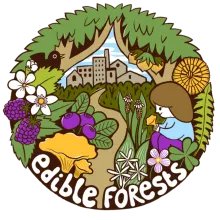A multi-million pound programme of strategic research delivered over five years providing science and evidence to support policymakers and its partners. Informed by strong partnerships and the needs of a broad range of stakeholders. Science at the heart of society contributing to the health, wealth and wellbeing of Scotland and beyond.
Ongoing research (2022-2027)
Development and use of advanced in vitro culture systems to interrogate host-pathogen interactions in livestock species
This project develops a range of advanced laboratory-based systems to investigate how production- and welfare-limiting diseases of Scottish livestock establish infections in their hosts. Our work is underpining the development of novel vaccines and diagnostic tests by identifying the animal's response to disease and it’s initiation of protection as well as providing new methods for pathogen isolation and identification.
Drivers and barriers for adopting healthy and sustainable food swaps in young adults
This project aims to identify the most effective food swaps, based on an individual’s diet, that makes their shopping basket more healthy and environmentally sustainable; and monitor in real-time whether physiological, psychological and environmental factors, at an individual level, affect the adoption of such food swaps and make individual diets healthier and more environmentally sustainable, in young adults.
Emerging water futures
This project is integrating model-based assessment of future risks to water quality and quantity under a range of scenarios, with new empirical water quality data and socio-economic risk assessment for drinking water supplies.
Enhancing livestock resilience and adaptability to environmental challenge, while protecting and enriching genetic diversity
Ensuring positive behavioural change for farmers towards best practice for clean growth: economic and behavioural investigations
This project uses existing and new data on farm businesses to provide a baseline of basic and best practice adoption in Scotland that can be used to evaluate future change. Using information provided by farmers in surveys and workshops, it also aims to identify opportunities for promoting best practice uptake across the agricultural sector to achieve enhanced agricultural productivity while reducing the overall impact on the environment.
EU Exit: challenges and opportunities for animal welfare
To maintain and improve animal welfare despite the UK's EU Exit, we will analyse how lower welfare standards from importing countries could impact farm sustainability, provide evidence on welfare issues relating to relevant standards, inform welfare aspects of CAP replacement, and develop welfare assessment methods (informed by emerging international standards). A selection of topical case studies will be produced and guided by policy developments.
Evaluation and mitigation of mycotoxin contamination across the Scottish cereal supply chain to assess human exposure and inform risk analysis
Mycotoxins are toxic fungal contaminants which are often found in cereal foods. This project addressees an important food safety issue, the contamination of cereal foods with mycotoxins which are produced by fungi in agricultural production. This project aims to minimize the risk to consumers from mycotoxin contamination in cereal foods by improving our understanding of the sources of contamination in primary cereal production and processing and by assessing human exposure and risk through biomarker analysis.
Exploring barley diversity for resilience and sustainability
We explore the biological consequences and potential practical applications of natural genetic variation found in the primary barley genepool to address future priorities in low carbon cereal agriculture. This is a contemporary barley genetics, genomics and informatics research project focused on scientific discovery and impactful translational biology.
Extending food production to Scotland’s underutilised lands
This project evaluates the potential of Scotland’s underutilised lands to contribute towards a sustainable food system and provide economic motivation to protect our natural capital. The focus is on wild species that can contribute towards sustainable food production, while meeting environment and biodiversity targets. Engagement with a wide range of stakeholders provides a RoadMap that will meet cross-sector needs.

Feeding and breeding strategies for climate resilient and sustainable dairying
We are working with Holstein cows from representative genetic lines and typical feeding systems to investigate relationships between milk production, efficiency and the ability to withstand the effects of climate change on feed supply and composition. We are developing new measures of feed variability, describe it for typical feeding systems and investigate effects on milk production and cow health. This is done with diets designed to reduce C footprints. Our aim is to develop optimal breeding and management strategies for climate smart production, climate resilience and enhanced biodiversity.